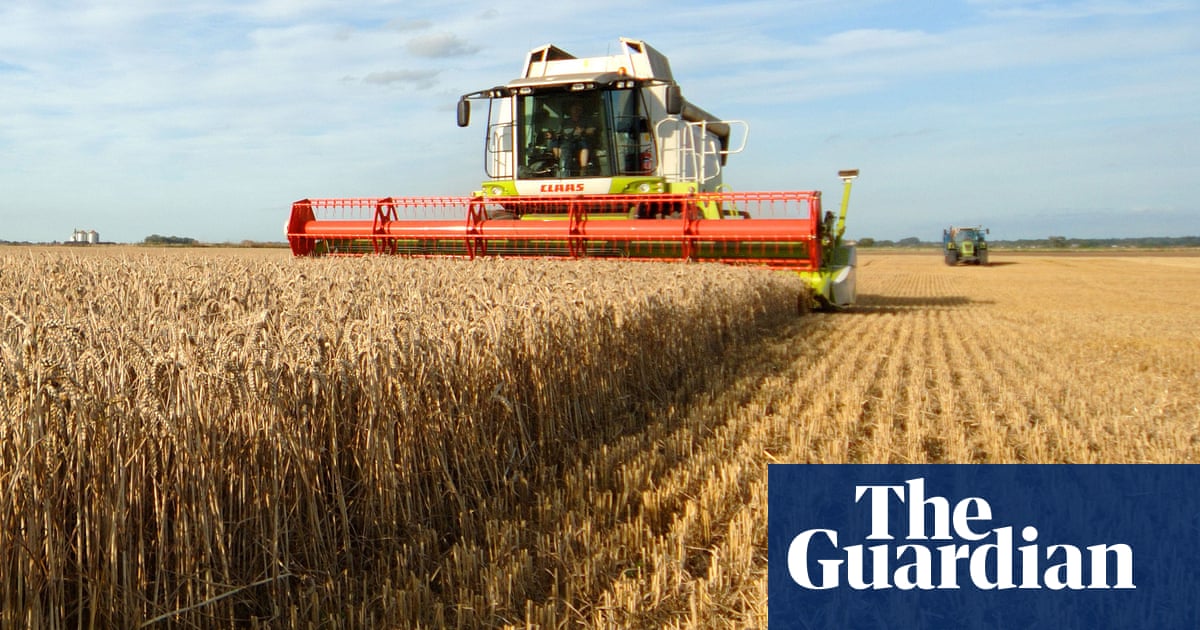More than 60% of the EU’s agricultural soils are degraded due to intensive agriculture, with similar damage to about 40% of British soils, a report has found.
Experts from the Save Soil initiative said nourishing and restoring agricultural soils could reduce the impact of the climate crisis and provide protection against the worsening extremes of weather, as well as the food shortages and price rises likely to accompany them.
This degradation of soil is changing the land’s water cycle and exacerbating the impact of the climate crisis in a vicious circle. Impoverished soils, lacking their natural structure, are incapable of holding water in any quantity, so that when it rains, the water tends to run off them, worsening flooding; but in times of drought, when healthy soils would act as a sponge, poor soils have little resilience.
Save Soil, which advocatesregenerative farming practices, called for soil restoration to be made a key priority of climate programmes, and for changes in agricultural policies and subsidies to reward it.
“Europe and the UK are experiencing extremes – parched fields one month, flooded towns the next. What this report makes clear is that our soils are no longer buffering us,” said a spokesperson for the group. “We are losing the natural infrastructure that manages water.”
In 2022, a third of the EU population and 40% of the bloc’s land were affected by water scarcity, while Spain, Italy and Germany have also seen disastrous floods in 2023-2024, the report noted. Groundwater levels have dropped by a third in France, and the UK is likely to see drought this year despite record rain last year.
Nearly half of the global urban population, about 2.4 billion people, will facewater scarcityby 2050, according to the UN. Price rises of some commodities affected by the climate crisis, includingcoffeeandchocolate, are already being seen by consumers.
Last year, a UN study found anexcess of salt was already reducing the fertility of at least 10% of land globally, while a further 1bn hectares were under threat. Healthy soils alsostore more carbon, helping to offset the impact of fossil fuels.
Sign up toDown to Earth
The planet's most important stories. Get all the week's environment news - the good, the bad and the essential
after newsletter promotion
Karen Johnson, professor of environmental engineering at Durham University, who was not involved with the report, said: “Soil is a living material intimately connected to human and planetary health and it is only by working with soil as a living material that we can address the global challenges [facing] water. Let’s work with the soil microbiome instead of against it – we may as well harness over three billion years of evolutionary knowledge.”
Hannah Blitzer, a senior policy officer at the Soil Association, called on the UK government to take action: “It is essential that soil is better protected – the UK government should give this vital resource the same protection as water and air, while also backing nature-friendly farming like organic that puts soil health first. This means moving away from reliance on harmful artificial pesticides and fertilisers and switching to building resilience in soils through nature-based solutions.”
In the UK, farmers can be paid to protect and restore their soils through government schemes. However, one of the key programmes, thesustainable farming incentive, has been paused, and funding for nature-friendly farming is under threat as the Treasury reviews expenditure, leaving farmers in doubt over whether to invest in changing their practices.
A spokesperson for the Department for Environment, Food and Rural Affairs said: “This government recognises the importance of healthy, functioning soil for resilience against the impacts of climate change, such as flooding and drought and to protect food security. That is why we are taking action through agri-environment schemes to encourage land management practices that focus on a sustainable approach to farm and soil management.”
